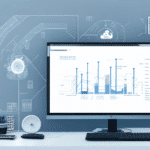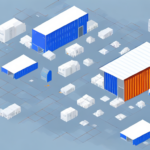Introduction to Priority ERP and Infor CloudSuite Industrial (SyteLine)
Enterprise Resource Planning (ERP) systems are essential for businesses aiming to streamline operations, enhance productivity, and maintain a competitive edge. Among the top ERP solutions in the market, Priority ERP and Infor CloudSuite Industrial (SyteLine) stand out for their robust features and versatility. This comprehensive comparison delves into their functionalities, benefits, technical distinctions, and suitability for various business needs.
Feature Comparison
Modularity and Customization
Priority ERP offers a modular architecture, enabling businesses to select and customize modules according to their specific processes. This flexibility is ideal for companies seeking tailored solutions without unnecessary features.
In contrast, Infor CloudSuite Industrial provides a comprehensive platform encompassing manufacturing, supply chain management, financials, and analytics. This all-in-one approach caters to businesses requiring integrated solutions across multiple departments.
Scalability
Priority ERP is scalable and well-suited for small to medium-sized enterprises (SMEs), allowing for growth without significant system overhauls.
Infor CloudSuite Industrial targets mid-sized to large enterprises, offering robust scalability to support extensive operations and complex business structures.
Industry-Specific Functionality
Infor CloudSuite Industrial excels in providing specialized features for industries such as aerospace, automotive, and medical devices. These tailored functionalities make it a preferred choice for manufacturers within these sectors.
Priority ERP offers versatility across various industries, including manufacturing, wholesale, healthcare, and services, making it adaptable to diverse business environments.
Reporting and Analytics
Both ERP systems boast advanced reporting and analytics capabilities. Priority ERP emphasizes real-time data insights, while Infor CloudSuite Industrial integrates comprehensive analytics tools to support data-driven decision-making.
User Interface and Usability
Priority ERP features a user-friendly interface that simplifies training and adoption, ensuring quick implementation and operational efficiency.
Conversely, Infor CloudSuite Industrial has a more complex interface due to its extensive features, which may require a steeper learning curve but offers deeper functionality for specialized tasks.
Benefits and Advantages
Priority ERP Benefits
- Improved Efficiency: Automates and streamlines business processes, reducing manual tasks and enhancing productivity.
- Enhanced Visibility: Provides real-time insights into inventory, financials, and operations, facilitating informed decision-making.
- Flexibility: Highly customizable to meet unique business requirements, allowing for adaptability as the business grows.
- Cost-Effective: Offers a modular pricing structure, making it accessible for SMEs with varying budgets.
Infor CloudSuite Industrial Advantages
- Comprehensive Functionality: Covers the entire manufacturing lifecycle, from product development to financial management.
- Industry-Specific Tools: Provides specialized features for sectors like aerospace and automotive, enhancing operational efficiency.
- Advanced Analytics: Facilitates real-time reporting and data analysis to optimize manufacturing processes.
- Seamless Integration: Easily integrates with other systems such as CRM and MES, fostering better data flow and collaboration.
Technical Differences
Deployment Options
- Priority ERP: Offers both on-premise and cloud-based deployment options, providing flexibility based on business preferences.
- Infor CloudSuite Industrial: Primarily cloud-based, leveraging Infor’s robust cloud infrastructure for scalability and reliability.
System Architecture
- Priority ERP: Modular and customizable, allowing businesses to implement specific functionalities as needed.
- Infor CloudSuite Industrial: An integrated platform that delivers comprehensive features out of the box, designed for rapid deployment in manufacturing environments.
Cost Analysis
The cost structures of Priority ERP and Infor CloudSuite Industrial differ significantly:
- Priority ERP: Utilizes a modular pricing model based on the number of users and selected modules, making it a cost-effective option for SMEs.
- Infor CloudSuite Industrial: Generally involves higher licensing fees and implementation costs, reflecting its extensive feature set and enterprise-level capabilities.
Businesses should evaluate their budget constraints and required functionalities to determine the most cost-effective solution.
Implementation and Support
Implementation Process
- Priority ERP: Involves detailed business process analysis, customization, and comprehensive training to ensure smooth adoption.
- Infor CloudSuite Industrial: Emphasizes rapid deployment with pre-configured templates tailored to specific industries, facilitating quicker go-live timelines.
Training and Support
- Priority ERP: Provides extensive online resources, documentation, user forums, on-site training, and customized training programs to support users.
- Infor CloudSuite Industrial: Offers a customer portal with access to updates, documentation, support resources, and an online community for peer and expert interactions.
Industry Suitability
Priority ERP
Ideal for small to medium-sized businesses across various industries, including:
- Manufacturing
- Wholesale and Distribution
- Healthcare
- Service Providers
Infor CloudSuite Industrial
Specifically designed for the manufacturing sector, catering to industries such as:
- Aerospace and Defense
- Automotive
- High Tech and Electronics
- Industrial Machinery and Equipment
- Medical Devices
Integration Capabilities
Both Priority ERP and Infor CloudSuite Industrial offer robust integration capabilities to connect with other business systems:
- API Integration: Utilize APIs to integrate with third-party applications, enhancing functionality and data flow.
- Web Services: Enable seamless data exchange between systems through web services.
- Middleware Solutions: Facilitate communication and integration between disparate software systems using middleware.
For optimal integration, partnering with experienced ERP consultants or integration specialists is recommended to ensure tailored and efficient connectivity.
Future Trends in ERP Systems
The landscape of ERP systems is evolving with advancements in digital transformation, artificial intelligence (AI), and cloud computing. Both Priority ERP and Infor CloudSuite Industrial are adapting to these trends:
- Priority ERP: Continues to focus on flexibility and customization, integrating AI-driven analytics to enhance decision-making processes for SMEs.
- Infor CloudSuite Industrial: Expands its industry-specific features and leverages cloud technologies to provide scalable, intelligent solutions for large manufacturers.
Staying abreast of these trends ensures that businesses can leverage the latest technologies to maintain operational excellence and competitive advantage.
Conclusion
Selecting the right ERP system is pivotal for aligning with your business objectives and driving growth. Priority ERP and Infor CloudSuite Industrial each offer unique strengths tailored to different business sizes and industry requirements. By evaluating their features, benefits, technical specifications, and cost structures, businesses can make an informed decision that best suits their operational needs and strategic goals.
For further information on ERP systems and their impact on business efficiency, refer to authoritative sources such as the Gartner ERP Glossary and reports from Forrester Research.




















